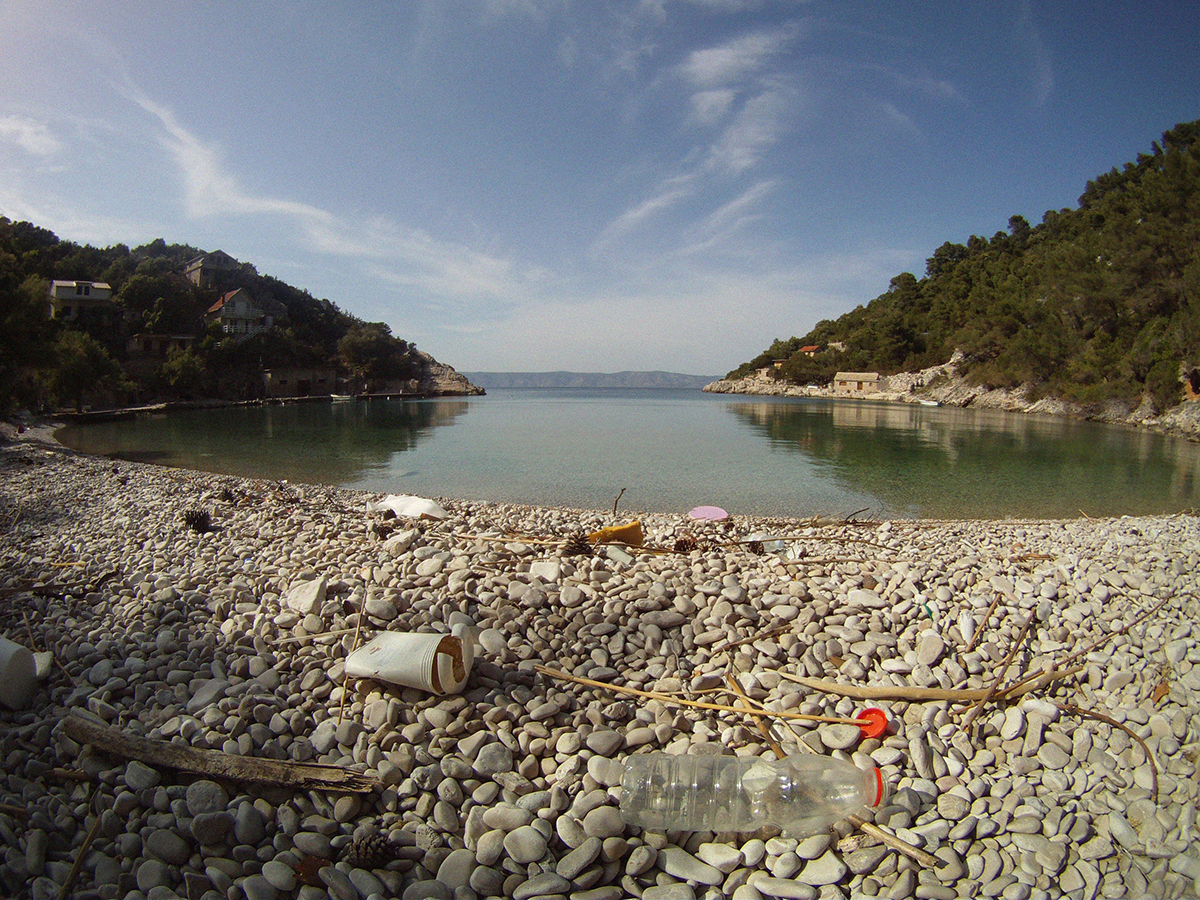
Plastic pollution problem / World oceans days
Today is World Oceans Day and this year’s theme is “Healthy Oceans, Healthy Planet”. Individuals and organizations across the planet are taking action for prevention of plastic pollution in our ocean. If you think plastic waste in the oceans is only a problems somewhere far far away, please continue reading. It´s here and it´s affecting us all. So please grab some friends, organize a clean up and be responsible for your trash.
This is how a plastic bag makes it from the city to the ocean…click for video.
This is the sad reality.
- It is now believed that there are 5.25 trillion pieces of plastic debris in the ocean. Of that mass, 269,000 tons float on the surface, while some four billion plastic microfibers per square kilometer litter the deep sea.
- The 13 sperm whales washed up near the German state of Schleswig-Holstein earlier this year, the latest in a series of whale strandings around the North Sea. After a necropsy of the whales in Germany, researchers found that four of the giant marine animals had large amounts of plastic waste in their stomachs. The garbage included a nearly 43-foot-long (13-meter-long) shrimp fishing net, a plastic car engine cover, and the remains of a plastic bucket.
- So far, more than 30 sperm whales have been found beached since the start of the year in the U.K., the Netherlands, France, Denmark, and Germany.
- A 10 meter (32.8 feet) sperm whale was found dead on the coast of Spain. After an autopsy, it was discovered that the whale’s stomach had over 17 kilograms (37 pounds) of greenhouse supplies (including sheeting, rope, and flower pots) that had been discarded into the Mediterranean Sea.
Aside from just eating the garbage, marine debris puts animals at risk through entanglement from old fishing lines and abandoned nets. Animals are in danger from being caught on things like 6-pack rings, which can cut off circulation or airways as the animal grows.
It is hard to estimate exactly how many animals are affected by plastic in the oceans each year, though some have put the number as high as 100,000. While some groups are experimenting with large-scale devices to reduce the amount of marine debris, there currently isn’t anything in place. Until this desperately-needed solution comes, it is on all of us to reduce the amount of litter generated so that it does not end up in the mouths or around the necks of ocean animals.
Problem is closer than you think
Let´s look at “my” island and one of the most beautiful island in the world, island Hvar in Croatia. Numbers of tourist visiting Hvar is growing every year. Imagine all that people, all the hotels, restaurants, camps and bars, now imagine Hvar has no recycling and nothing is taken off the island. It all stays there, slowly finding it´s way into the sea. Add to this all the trash from other islands, Italy, Albania, Greece….
Looks like a dream beach right?
But if you take a step back ….

Take action.
Grab a bag and collect the trash. This was collected just a few meters from my house in 10 minutes. That´s all it takes. I know that this trash and plastic we collected will not get recycled on the island, but it´s already a lot that it will not be washed from the beach back to the sea.
(And you can see a big fridge in a video, don´t worry it will not stay there.)
What can you do on your trip to Croatian islands and in your everyday life?
Reduce the things you buy. Reuse what you have. Repurpose what you have and use it for something else, be creative. And on the end recycle!
1. Avoid buying plastic bottles. If you have to buy them, collect them and ask in your local shop when can they be returned and they will take them back for 0,50kunas each. If not collect them and leave them next to trash, somebody will return them to the shop and get few kunas for them. You can also ask local winemakers if they need them, usually they are happy to take them too. Same goes for bottles and cans.
2. Leave nothing behind when you go to the beach, bring your trash with you.
3. Bring a trash bag to the beach and collect trash, hopefully you will inspire others to act more responsibly with the trash they bring.
4. Bring a reusable bags to the shop and market.
5. Take home you trash and everything you brought to the island. Pile your car with plastic you brought with you and drive it off the island. Please don´t leave your trash behind. It will stay there for hundreds of years after you are already gone.
6. Don´t throw anything in the sea. It should be pretty clear to everybody, but just in case.
7. Refuse all the plastic: If you go for ice cream, please tell to leave out all decoration, plastic umbrellas and plastic spoons, straws. Refuse drinks in plastic glasses. Refuse all advertising material, if you need it just take a photo of it with your phone.
8. What you could also do is to unpack all the food at home and pack it into a glass/plastic reusable containers and jars or cotton bags and bring that with you. This way you will leave less trash behind when you leave the island and take your empty reusable containers back home with you.
9. Don´t buy beach toys, beach matrasses, balloons or anything else you know it will break in 2 days and end up in the sea.
10. Don´t use plastic picknick plates, plastic flatware or cups. Bring reusable metal or even plastic plates or bowls that you will bring back home.
11. Don´t buy or use products with microplastic. Here is a list of products that contain microplastic, some of them might surprise you.
12. Clean with all-natural ingredients — baking soda, lemons, vinegar — rather than buying bottles of toilet cleaner and bleach.
13. Line your garbage bins with paper bags or biodegradable trash bags instead of buying plastic trash bags.
14. Avoid candles. If you really have to buy them than buy soy candles in glass (not paraffin), instead of buying them in plastic holders. Or invest in a few cool solar garden lights.
15. Use natural anti-mosquito sprays or creams with lavender, catnip,citronella essential oil, neem oil, black pepper or eat a lot of fresh garlic.
16. Read my Zero Waste challenge right here and learn what you can do to save our oceans from plastic.
Scientists agree: If the oceans die, we die.
It’s as simple as that, and the choice is between committing mindless mass collective suicide i.e. the ultimate total homicide or standing up and fighting for survival. One thing for certain however is that we are running out of time.
Thank you!




Leave a Reply